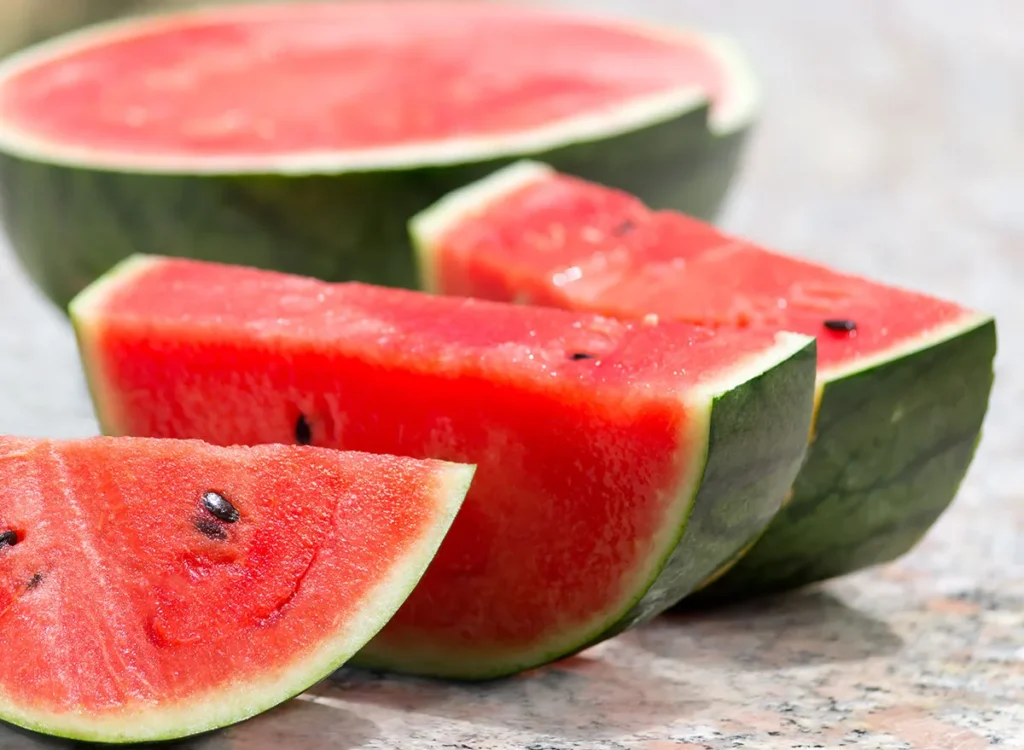Despite being comprised mostly of water (approximately 92%), watermelons pack a punch when it comes to nutrients. Each succulent bite delivers notable amounts of vitamins A, B6, and C, abundant lycopene, antioxidants, and amino acids.
Additionally, there’s a modest potassium content. This iconic summer treat is devoid of fat, exceptionally low in sodium, and clocks in at a mere 40 calories per cup.
“Foods rich in antioxidants and amino acids are crucial for optimal bodily function,” explains Angela Lemond, a registered dietitian nutritionist based in Plano, Texas. Antioxidants play a key role in preventing damage and potential cancer development.
Meanwhile, amino acids serve as the fundamental building blocks for protein, essential for a multitude of vital bodily processes.
This article highlights several health benefits of watermelon, including:
- Heart Health:
Watermelon’s abundant lycopene content is remarkably effective in shielding cells from damage, potentially lowering the risk of heart disease. A study featured in the American Journal of Hypertension revealed that extracts from watermelon contributed to reducing hypertension and decreasing blood pressure among obese adults.
Watermelon holds particular significance for older women, as evidenced by a study indicating its benefits. Postmenopausal women, who typically experience increased aortic stiffness, demonstrated reduced blood pressure and arterial stiffness after six weeks of watermelon extract intake compared to those who did not consume it. Arginine, present in watermelon, aids in enhancing blood flow and may assist in reducing the accumulation of excess fat.
- Anti-inflammatory Properties:
The presence of lycopene in watermelon bestows upon it anti-inflammatory attributes. Lycopene serves as an inhibitor for various inflammatory processes and functions as an antioxidant, effectively neutralizing free radicals. Moreover, watermelon contains choline, which helps mitigate chronic inflammation.
Reducing inflammation isn’t solely beneficial for individuals dealing with arthritis. When you’re unwell, cellular damage occurs due to various factors such as stress, smoking, pollution, and diseases, leading to inflammation throughout the body, known as “systemic inflammation.” Anti-inflammatory foods play a crucial role in enhancing overall immunity and promoting general health in combating this condition.
- Hydration:
Watermelons play a significant role in maintaining overall hydration, which is vital for well-being. “They say we can fulfill 20-30 percent of our fluid requirements through our diet alone, and foods like watermelon certainly contribute to this.” Furthermore, watermelon juice is rich in beneficial electrolytes, which can aid in preventing heat stroke. - Digestive Health:
Watermelon is rich in fiber, which promotes a well-functioning digestive system and aids in maintaining regularity.
- Skin and Hair Nourishment:
Watermelon is a great source of vitamin A, with just a cup providing nearly one-quarter of your daily recommended intake. Vitamin A plays a vital role in keeping the skin and hair moisturized, while also stimulating the growth of new collagen and elastin cells, as noted by the Cleveland Clinic. Additionally, vitamin C found in watermelon supports healthy collagen growth, further enhancing skin and hair health.
- Muscle Recovery & Athletic Performance:
Athletes who enjoy watermelon are in for a treat; consuming watermelon juice before a rigorous workout can alleviate next-day muscle soreness and lower heart rate, as evidenced by a 2013 study in the Journal of Agricultural and Food Chemistry. This effect is credited to watermelon’s amino acids, citrulline, and arginine, which contribute to improved circulation.
- Enhanced Athletic Performance:
In addition, a study conducted in 2015 indicates that citrulline found in watermelon may enhance athletic performance. Participants who supplemented with citrulline experienced improved performance, demonstrating increased power production during high-intensity exercises such as cycling and sprinting.
- Cancer Prevention:
Watermelons, like other fruits and vegetables, may play a role in reducing the risk of cancer due to their antioxidant properties. Specifically, lycopene has been associated with a reduction in prostate cancer cell proliferation, as stated by the National Cancer Institute.







